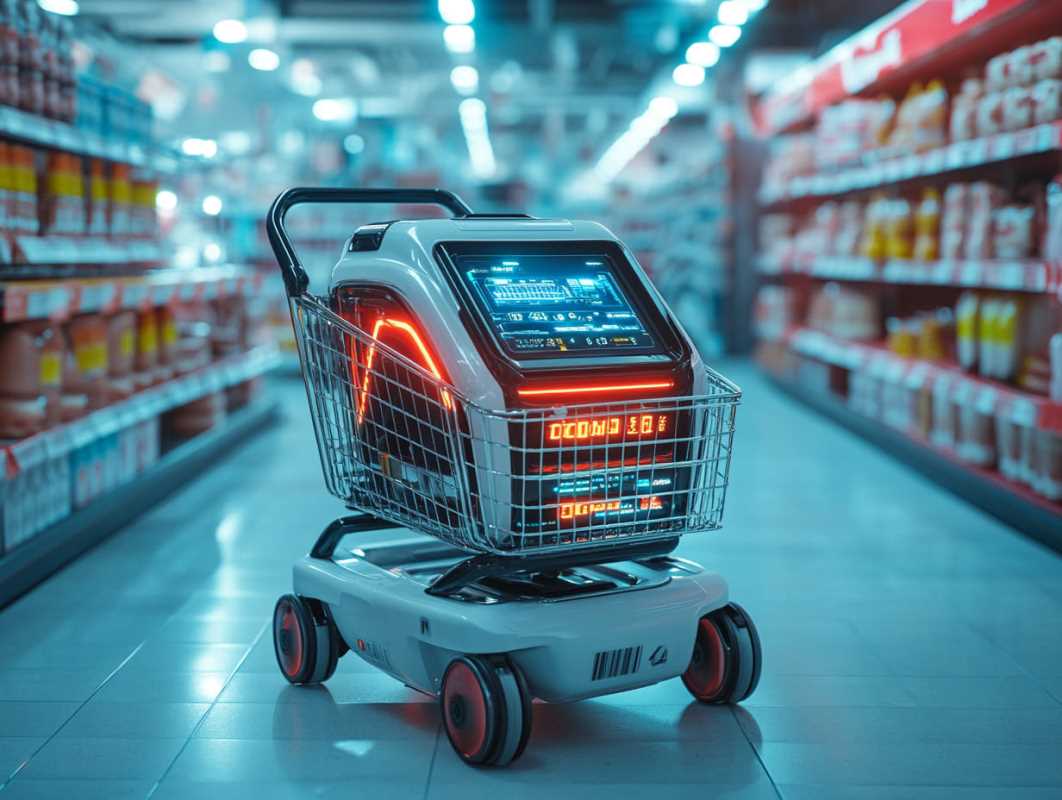The digital marketplace is thriving. From everyday essentials to rare collectibles, virtually everything can be purchased online. But alongside this explosive growth in e-commerce lies an unsettling shadow: cyber threats. Every transaction, login, and data exchange is a potential target for bad actors seeking to exploit vulnerabilities in online systems. Securing e-commerce platforms isn’t just a technical necessity; it’s a moral and financial imperative.
In recent years, artificial intelligence (AI) has emerged as a game-changer in this landscape. Unlike traditional security systems that rely on pre-programmed rules, AI learns, adapts, and evolves. It’s capable of analyzing vast volumes of data in real time, spotting patterns and irregularities that human analysts might miss. AI doesn’t just react to threats—it anticipates them.
In a world where trust is everything, AI equips e-commerce businesses with the tools they need to protect consumers, safeguard sensitive data, and keep operations running smoothly. Without it, the ever-evolving sophistication of cybercriminals would outpace human capacity to respond.
Detecting and Preventing Fraud with AI
Fraud is one of the most pressing threats in e-commerce, costing businesses billions annually and eroding customer trust. Traditionally, fraud detection systems used rigid, rule-based frameworks. These systems flagged transactions based on pre-defined parameters, such as unusual spending patterns or mismatched billing addresses. However, as cybercriminals became more adept, they found ways to bypass these static defenses. Enter AI, with its dynamic and predictive capabilities.
AI excels in fraud detection because it doesn’t merely follow rules — it learns. Machine learning algorithms sift through massive amounts of transactional data to identify patterns that indicate fraud. For instance, AI might notice:
- A customer making multiple high-value purchases from different IP addresses within minutes.
- Shipping addresses that don’t correspond to billing information.
- Suspiciously timed transactions, such as those occurring in the middle of the night across multiple time zones.
Additionally, AI-powered systems like neural networks can detect “synthetic identities,” where fraudsters combine real and fake information to create new accounts. These systems work tirelessly, providing 24/7 monitoring that evolves with each new piece of data they analyze.
By continuously refining their understanding of what constitutes fraudulent behavior, AI systems can significantly reduce false positives. This ensures that genuine customers aren’t inconvenienced while still catching bad actors in the act.
Strengthening User Authentication with AI
Passwords are so last decade. As consumers grow weary of juggling dozens of complex passwords, cybercriminals grow more adept at stealing them. Weak or stolen credentials are responsible for a staggering number of security breaches, underscoring the need for better authentication methods. AI has stepped in to provide cutting-edge solutions that are both secure and user-friendly.
Biometric authentication, powered by AI, has become a cornerstone of modern e-commerce security. Fingerprints, facial recognition, and voice analysis provide a level of security that’s incredibly difficult to replicate. Unlike passwords, which can be guessed or phished, biometric data is unique to each user. AI refines this process by making it faster and more accurate, minimizing errors that might frustrate customers.
Another breakthrough lies in behavioral analysis. AI tracks how users interact with an e-commerce platform — everything from the speed at which they type to the angle of their mouse movements. This creates a unique behavioral profile for each user. If a cybercriminal tries to impersonate the account holder, deviations from this profile alert the system to potential fraud.
AI also enables adaptive authentication. Imagine logging into your favorite shopping site from your usual device at home — no problem. But log in from a foreign country, and the system might request additional verification. These intelligent, context-aware systems strike the perfect balance between security and convenience.
Safeguarding Customer Data with AI
The phrase “data is the new oil” captures the immense value of information in today’s economy. But for e-commerce businesses, data isn’t just an asset — it’s a liability. Hackers are constantly on the prowl for ways to steal sensitive customer information, from credit card numbers to shipping addresses. AI provides a robust defense against these threats, helping businesses keep their data secure.
One of AI’s most powerful tools in this arena is predictive analytics. By identifying potential vulnerabilities in a system before they can be exploited, AI allows businesses to patch weaknesses proactively. For example, AI might flag outdated software, misconfigured servers, or suspicious activity in employee accounts.
Encryption is another area where AI shines. While traditional encryption methods scramble data to make it unreadable without the correct key, AI can take this a step further. AI-powered encryption systems dynamically adjust their protocols to stay ahead of hackers’ evolving techniques, ensuring that even intercepted data remains indecipherable.
In addition to preventing breaches, AI can also mitigate the damage when they occur. Early detection systems powered by AI can identify anomalies in network traffic that signal an ongoing attack. These systems isolate affected servers and block unauthorized access, limiting the extent of the breach.
For e-commerce businesses, AI is not just a guardian of data — it’s a guarantee of trust. Consumers are more likely to shop with brands that demonstrate a commitment to security, making AI-driven data protection a competitive advantage.
The Future of AI in E-Commerce Security
AI is already reshaping e-commerce security, but its potential is far from fully realized. The future promises even more sophisticated tools and strategies to combat cyber threats. However, it’s not all smooth sailing. The rapid pace of AI development raises ethical and technical questions that businesses must address.
One challenge is the risk of AI bias. If the data used to train an AI system is incomplete or skewed, the resulting algorithms may unfairly target certain transactions or customers. Ensuring fairness and inclusivity in AI systems is crucial for maintaining trust and avoiding discrimination.
Another concern is the potential misuse of AI by cybercriminals. Just as businesses leverage AI to improve security, hackers are using it to create smarter attacks. AI-generated phishing emails, for example, are increasingly difficult to distinguish from genuine messages. This arms race demands constant vigilance and innovation from security professionals.
Despite these challenges, the future of AI in e-commerce security is bright. Emerging technologies like quantum computing could revolutionize encryption, making it virtually uncrackable. Meanwhile, advances in AI modeling promise even greater accuracy in threat detection and response.
The integration of AI with other technologies, such as blockchain, could also unlock new possibilities. Blockchain’s decentralized nature, combined with AI’s analytical power, offers a robust framework for securing online transactions.
Ultimately, the role of AI in e-commerce security is about more than just technology — it’s about trust. By embracing these advancements, businesses can create a safer, more reliable online shopping experience, fostering loyalty and confidence among their customers.
The Takeaway
E-commerce is booming, but with great power comes great responsibility. Businesses must stay one step ahead of cybercriminals to protect their customers and their reputations. Artificial intelligence, with its unparalleled ability to learn, adapt, and evolve, is the key to achieving this.
From fraud detection and user authentication to data protection and future innovations, AI is transforming e-commerce security at every level. The challenges are real, but so is the opportunity to build a digital shopping environment that’s as secure as it is convenient. For e-commerce businesses and shoppers alike, the future looks bright— and safer — thanks to AI.
 (Image source: Midjourney)
(Image source: Midjourney) 





